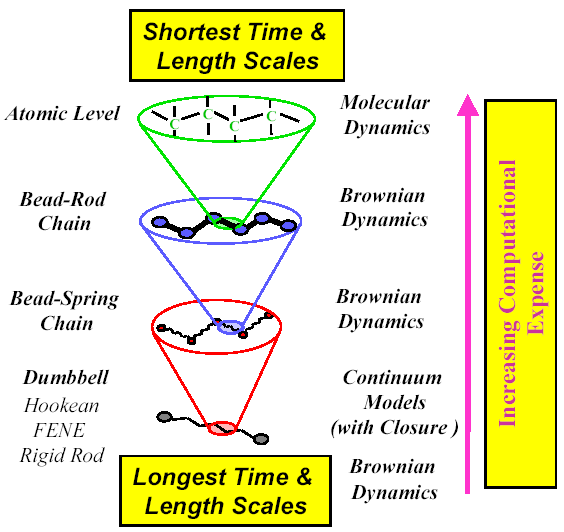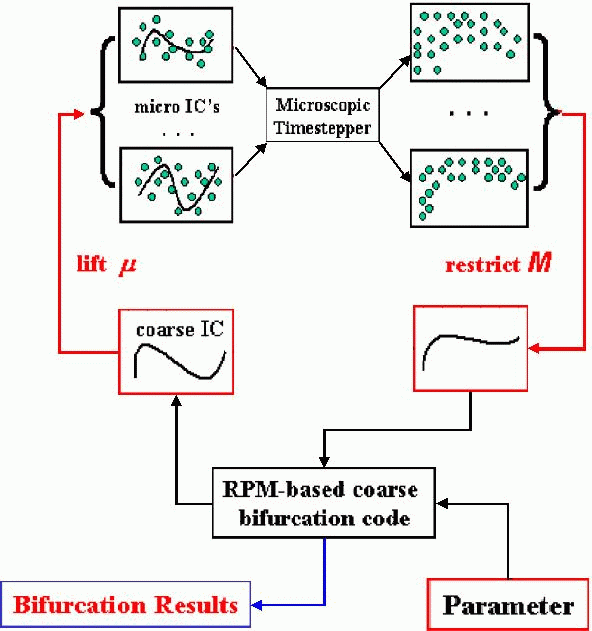Enabling Microscopic Simulators to Perform System-Level Analysis of Viscoelastic Flows
| Personnel: | Z. Anwar, Y.G. Kevrekidis (Princeton), R.C. Armstrong |
| Sponsorship: | NSF-ITR Collaborative Research Grant Award Number 0205411 |
State-of-the-art simulators for viscoelastic flow are currently unable to utilize detailed molecular models of the underlying physics, thereby limiting their potential for accurate analysis of stability and flow transitions in viscoelastic fluids of industrial importance. Due to lack of closed macroscopic evolution equations for such flows, we propose to utilize the coarse time-stepper based approach to stability and bifurcation analysis, which has shown potential to enable models at a 'fine' (microscopic/stochastic) level of description to perform modeling tasks at a 'coarse' (macroscopic/systems) level. The motivation for such an analysis is a framework for obtaining macroscopic time information from appropriately initialized calls to a microscopic simulator for only short times. The ultimate goal of the research is to extend this framework over spatial domains and build a computational super structure which implements the proposed methodology for computer-aided multiscale analysis of viscoelastic flows.

|
Figure 1: Hierarchy of length and time scales in polymer modeling, and corresponding simulation techniques. |

|
Figure 2: Illustration of the coarse time-stepper based approach. |